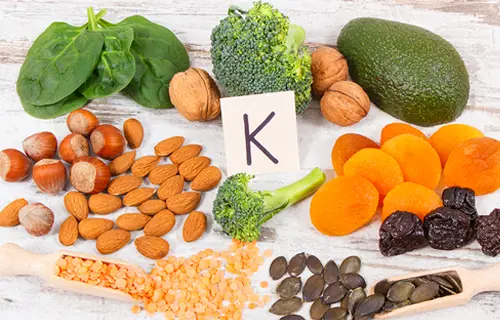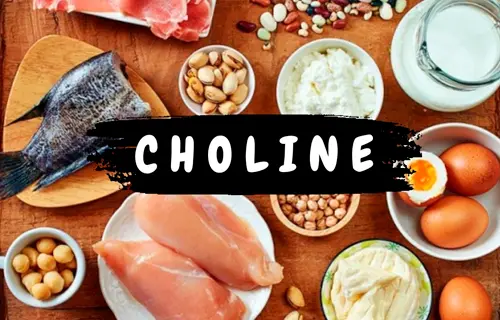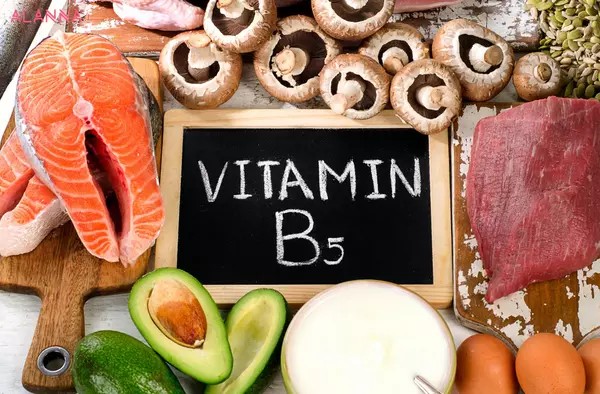Vitamin k

If you tested your DNA with a personal genomics service like 23andMe, AncestryDNA, FamilyTreeDNA, MyHeritage or another testing company, you can learn more about your risk factors for hundreds of diseases. By clicking the button above ⬆️, you can upload your raw DNA data file and receive a personalized 250-page health report with research links that is the most comprehensive.
The biologically active form of vitamin K acts as a co-factor in a reaction crucial for both blood coagulation and bone metabolism. Following this vitamin K-dependent reaction, facilitated by the gamma glutamyl carboxylase (GGCX) gene, vitamin K transitions to an inactive state. The inactive vitamin K can then be converted back to its active form by the enzyme vitamin K epoxide reductase 1 (VKORC1).
Genetic variations within the GGCX and VKORC1 genes significantly impact the physiology of blood clotting and bone mineralization. Particularly, the anticoagulant drug warfarin/coumadin inhibits the enzymatic activity of VKORC1, affecting the maturation of blood clotting factors. As a result, individuals at risk of thromboembolic events should discuss their vitamin K intake with their healthcare provider.
VKORC1 gene variants, such as the SNP rs9923231, can modify the activity of the enzyme produced by the gene. The C allele demonstrates heightened expression and activity compared to the T allele, leading to increased availability of active vitamin K (KH2). Conversely, the T allele results in reduced levels of the VKORC1 enzyme and subsequently lower activity of clotting factors. The prevalence of the C allele is approximately 58-64% among Caucasians and Hispanics, and 85-92% among Africans, while the T allele is present in about 87-94% of Asians. Hence, individuals of Asian descent with the T genotype typically require lower doses of warfarin.
Follow the link of the selected polymorphism to read a brief description of how the selected polymorphism affects Vitamin K and see a list of existing studies.
SNP polymorphisms related to the topic Vitamin K:
| rs7294 | Polymorphism responsible for the level of sensitivity to warfarin (vitamin K antagonist). |
| rs2359612 | Polymorphism responsible for the level of sensitivity to warfarin (vitamin K antagonist). |
| rs2884737 | Polymorphism responsible for the level of sensitivity to warfarin (vitamin K antagonist). |
| rs9923231 | Polymorphism responsible for the level of sensitivity to warfarin (vitamin K antagonist). |
| rs9934438 | Polymorphism responsible for the level of sensitivity to warfarin (vitamin K antagonist). |
| rs17708472 | Epoxidoreductase gene variations affecting biochemical indicators of vitamin K status. |
About The Author
Li DaliLi Dali, a National Foundation for Outstanding Youth Fund recipient, is a researcher at the School of Life Sciences in East China Normal University. He earned his PhD in genetics from Hunan Normal University in 2007 and conducted collaborative research at Texas A&M University during his doctoral studies. Li Dali and his team have optimized and innovated gene editing technology, leading to the establishment of a world-class system for constructing gene editing disease models.


